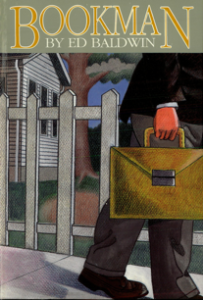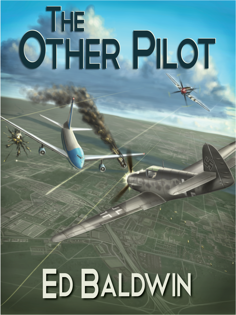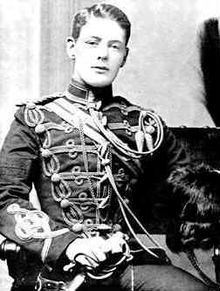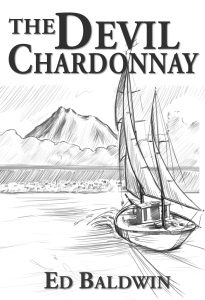Ed Baldwin's Blog, page 6
April 2, 2013
Free books!
 Author Ed Baldwin is offering free copies of his first novel, Bookman, now available in Kindle format to anyone who will read it and write a review in Amazon. Bookman, first published in 1990 is Southern Fiction and the cover and a synopsis are available on this web site. Simply reply to this message with your contact information and I’ll tell you how to get your free book.
Author Ed Baldwin is offering free copies of his first novel, Bookman, now available in Kindle format to anyone who will read it and write a review in Amazon. Bookman, first published in 1990 is Southern Fiction and the cover and a synopsis are available on this web site. Simply reply to this message with your contact information and I’ll tell you how to get your free book.
The post Free books! appeared first on The Website of Author Ed Baldwin.
March 28, 2013
The Other Pilot competing in the 2013 Independent Publisher Book Awards!
Brasfield Books has entered The Other Pilot, the critically acclaimed political action thriller by Ed Baldwin in the 2013 Independent Publisher Book Awards. The 17th annual Independent Publisher Book Awards  honor the year’s best independently published titles. The contest is presented by Jenkins Group and their book marketing website, IndependentPublisher.com, headquartered in Traverse City, Michigan.
honor the year’s best independently published titles. The contest is presented by Jenkins Group and their book marketing website, IndependentPublisher.com, headquartered in Traverse City, Michigan.
The “IPPY” Awards were conceived as a broad-based, unaffiliated awards program open to all members of the independent publishing industry, and are open to authors and publishers worldwide who produce books written in English and intended for the North American market. We define “independent” as 1) independently owned and operated; 2) operated by a foundation or university; or 3) long-time independents that became incorporated but operate autonomously and publish fewer than 50 titles a year.
75 subject categories in National awards
Regional awards for the United States, Canada, and Australia and New Zealand
E-Book Awards with fiction, non-fiction, children’s and regional categories
The post The Other Pilot competing in the 2013 Independent Publisher Book Awards! appeared first on The Website of Author Ed Baldwin.
Update review of The River War by Winston Churchill
In my review of Churchill’s book The River War: An Account of the Reconquest of the Sudan, I didn’t mention anything about editions or furnish a link. I went to Amazon and discovered there are several editions of this book, and some come without maps. So, get this one, which appears to be a reprint of the original plates: ISBN 9781420933802
There were some really unhappy readers when they tried to make sense of this excellent account of the Sudan War without the maps that were in the original version. The most unhappy readers were those who purchased the Kindle edition, as the computer format was done poorly and one reviewer said it was unreadable. Buyer beware, the publishing industry is entering a phase of unreliability as independent publishers are looking for any way to get a manuscript into Kindle without having to actually write something. I’ve been getting emails daily from people saying it’s “dumb” to actually write a book when it’s so easy to get someone else to “do the dirty work.” Or, apparently, find something that’s in the public domain and submit it for publication.
The post Update review of The River War by Winston Churchill appeared first on The Website of Author Ed Baldwin.
March 26, 2013
Review of “The River War” by Winston Churchill
 The River War: An Account of the Reconquest of the Sudan was Winston Churchill’s second book, long out of print but brought back by print on demand. He was a lieutenant in the 21st Lancers, a British cavalry unit with the Egyptian Army at the Battle of Omdurman in the Sudan on September 2, 1898. This is history made more exciting than adventure fiction by one of the best writers the English language has produced. With a historian’s attention to detail, Churchill relates nearly a century of warfare and political maneuvering as Egypt dominated a land mass three times its size containing a thousand miles of the Nile River. Egyptian rule was based on slavery as they taxed their Arab subjects to collect slaves from the black population of the southern swamps. A series of self proclaimed khalifas, or Muslim leaders emerged to challenge Egypt, and in 1896 their rule threatened Egypt itself as jihadists surged north. Britain had sent a series of military leaders to bring order to the chaos, and finally mobilized an army to back up the Egyptians and they plunged south along the Nile and the Desert Railway.
The River War: An Account of the Reconquest of the Sudan was Winston Churchill’s second book, long out of print but brought back by print on demand. He was a lieutenant in the 21st Lancers, a British cavalry unit with the Egyptian Army at the Battle of Omdurman in the Sudan on September 2, 1898. This is history made more exciting than adventure fiction by one of the best writers the English language has produced. With a historian’s attention to detail, Churchill relates nearly a century of warfare and political maneuvering as Egypt dominated a land mass three times its size containing a thousand miles of the Nile River. Egyptian rule was based on slavery as they taxed their Arab subjects to collect slaves from the black population of the southern swamps. A series of self proclaimed khalifas, or Muslim leaders emerged to challenge Egypt, and in 1896 their rule threatened Egypt itself as jihadists surged north. Britain had sent a series of military leaders to bring order to the chaos, and finally mobilized an army to back up the Egyptians and they plunged south along the Nile and the Desert Railway.
Even the young Churchill was a consummate writer. Thoroughly researched, The River War has 22 maps, dozens of tables listing units, staffing, supplies and casualties, dispatches between the various leaders, transcripts of debate in Parliament, newspaper accounts and other background material. It has no index. All this background can be used as reference, or ignored. Churchill’s prose carries this fascinating story along so well I ripped through it in a couple days.
The best part is Churchill’s eye witness account of the Battle of Omdurman. A cavalry charge with sabers and pistols into the teeming center of the Dervish army; reading it, I was there!
I bought this book as research for my novel The Devil on Chardonnay, which deals partly with war in Sudan. I have read Churchill’s history of World War II, and consider it one of my favorites; it’s five volumes. The younger Churchill is wordier than the mature Churchill, and his prose can be a bit flowery. I skimmed some of the history in the first hundred pages. I give this book a 4 star rating.
Here’s an excerpt: ”The real Soudan, known to the statesman and the explorer, lies far to the south–moist, undulating, and exuberant. But there is another Soudan, which some mistake for the true, whose solitudes oppresses the Nile from the Egyptian frontier to Omdurman. This is the Soudan of the soldier. Destitute of wealth or future, it is rich in history. The names of its squalid villages are familiar to distant and enlightened peoples. The barrenness of its scenery has been drawn by skillful pen and pencil. It’s ample deserts have tasted the blood of brave men. Its hot, black rocks have witnessed famous tragedies. It is the scene of the war.”
The post Review of “The River War” by Winston Churchill appeared first on The Website of Author Ed Baldwin.
March 16, 2013
The Devil on Chardonnay cover art
 The cover art for my new novel The Devil on Chardonnay has just been submitted. Steve Meosky, the cover artist is still working out colors and detail but I thought readers might enjoy seeing the evolution of a book cover. Chardonnay is a beautiful 120 foot sailing yacht built early in the last century and in this adventure she is sailing toward the volcano Pico on the island of that name in the Azores. Much of the plot of The Devil on Chardonnay takes place on this vessel and in the Azores.
The cover art for my new novel The Devil on Chardonnay has just been submitted. Steve Meosky, the cover artist is still working out colors and detail but I thought readers might enjoy seeing the evolution of a book cover. Chardonnay is a beautiful 120 foot sailing yacht built early in the last century and in this adventure she is sailing toward the volcano Pico on the island of that name in the Azores. Much of the plot of The Devil on Chardonnay takes place on this vessel and in the Azores.
The post The Devil on Chardonnay cover art appeared first on The Website of Author Ed Baldwin.
March 12, 2013
The Devil on Chardonnay
My next book is almost finished. The Devil on Chardonnay thrusts Boyd Chailland into an adventure on the world stage. A secret vaccine; jihadists in Sudan, crooked bankers in South Carolina, and a dead viral researcher in the Seychelles are just the beginning. The real action starts when Boyd, a female FBI agent, and a banker sprung from the federal pen at Leavenworth sail on a 120 ft. sailing yacht from Charleston to the Azores during hurricane season with the notorious European merchant banker Michelle Meilland. The Devil on Chardonnay has location, quirky characters, action, and a bio-warfare threat that could happen tomorrow. The action climax takes place here, in the Azores, on this volcano. I lived there for two years and my story will give the reader a sense of that wonderful, out of the way paradise.
The post The Devil on Chardonnay appeared first on The Website of Author Ed Baldwin.
Schadenfreude
During the early 1990′s when I was trying to find a literary agent for my second book, The Other Pilot, I bought a copy of Literary Marketplace. Using the new internet, I found many of the agents had web sites. Several stated that they didn’t consider schadenfreude. I had never heard that word before, so I looked it up. It means “just deserts,” or enjoying the pain of others. I didn’t understand why agents would bother distancing themselves from it. Now, in the full measure of time, it’s clearer. Schadenfreude is at the core of the commercial literary marketplace. Virtually all genre fiction depends on schadenfreude as a plot tool to generate emotion. Let’s have a look.
Thrillers depend more on villains than they do heroes. It’s easy to craft a good guy, much harder to create a creditable villain. The easy way is to paint a vague picture of the villain and then spend effort on the cruel evil deeds he/she does and the suffering they cause. Then, at the end, you roast your villain in a fire or flay them with rusty knives; payback is a bitch. That’s schadenfreude.
Romance novels need villains too, though their evil deeds are interpersonal rather than violent or lethal. Still, the twist at the end involves someone getting what they deserve while the heroine rides off with the handsome prince; schadenfreude.
Detective novels, police procedurals, war; all schadenfreude.
Literary fiction does not, usually, involve this plot device. Thus, those agents excluding schadenfreude from submission were excluding genre fiction. They were limiting their agency to non-fiction, which is a much steadier source of income for agents than fiction, and literary fiction, which is notoriously risky for agent and publisher. But, literary fiction is where the fun is, and agents are usually English majors and fancy that they will discover, nurture and bring to market the next Hemingway. They don’t want to be bothered by cheap tricks.
Unwittingly, in my novel Bookman, I used schadenfreude in an unusual way. I made Phil, the protagonist, into a complete jerk, and piled misdeeds and mistakes on him like a Judas goat. He did everything wrong, then when he got his face busted by a sadistic Memphis policeman, the reader felt a certain satisfaction, and Phil could repent and become a sympathetic character. Writing the misdeeds was fun. Bookman is literary fiction. Gone with the Wind is considered literary fiction, or Southern fiction. Recall that Rhett finally leaves Scarlett, and all the female readers sigh, “she had it coming.” Literary agents would love to have a piece of that schadenfreude.
The post Schadenfreude appeared first on The Website of Author Ed Baldwin.
March 10, 2013
Schadenfreude
During the early 1990′s when I was trying to find a literary agent for my second book, The Other Pilot, I bought a copy of Literary Marketplace. Using the new internet, I found many of the agents had web sites. Several stated that they didn’t consider schadenfreude. I had never heard that word before, so I looked it up. It means “just deserts,” or enjoying the pain of others. I didn’t understand why agents would bother distancing themselves from it. Now, in the full measure of time, it’s clearer. Schadenfreude is at the core of the commercial literary marketplace. Virtually all genre fiction depends on schadenfreude as a plot tool to generate emotion. Let’s have a look.
Thrillers depend more on villains than they do heroes. It’s easy to craft a good guy, much harder to create a creditable villain. The easy way is to paint a vague picture of the villain and then spend effort on the cruel evil deeds he/she does and the suffering they cause. Then, at the end, you roast your villain in a fire or flay them with rusty knives; payback is a bitch. That’s schadenfreude.
Romance novels need villains too, though their evil deeds are interpersonal rather than violent or lethal. Still, the twist at the end involves someone getting what they deserve while the heroine rides off with the handsome prince; schadenfreude.
Detective novels, police procedurals, war; all schadenfreude.
Literary fiction does not, usually, involve this plot device. Thus, those agents excluding schadenfreude from submission were excluding genre fiction. They were limiting their agency to non-fiction, which is a much steadier source of income for agents than fiction, and literary fiction, which is notoriously risky for agent and publisher. But, literary fiction is where the fun is, and agents are usually English majors and fancy that they will discover, nurture and bring to market the next Hemingway. They don’t want to be bothered by cheap tricks.
Unwittingly, in my novel Bookman, I used schadenfreude in an unusual way. I made Phil, the protagonist, into a complete jerk, and piled misdeeds and mistakes on him like a Judas goat. He did everything wrong, then when he got his face busted by a sadistic Memphis policeman, the reader felt a certain satisfaction, and Phil could repent and become a sympathetic character. Writing the misdeeds was fun. Bookman is literary fiction. Gone with the Wind is considered literary fiction, or Southern fiction. Recall that Rhett finally leaves Scarlett, and all the female readers sigh, “she had it coming.” Literary agents would love to have a piece of that schadenfreude.
The post Schadenfreude appeared first on The Website of Author Ed Baldwin.
March 7, 2013
Ed Baldwin Reviews All the King’s Men by Robert Penn Warren
Politics is a recurring play; always new, and always the same. Robert Penn Warren introduces us to Willie Stark, small town lawyer with the gift of reading the mind of the crowd. His rise to power, and his use of that power as governor of Louisiana is all about smoky back rooms and unsavory deals as he evolves from idealist to corrupt politician. Narrated by Jack Burden, an over educated newspaper reporter from an upper crust family searching for the truth in politics and his own life, we follow Willie’s rise and fall. Ann Stanton, Jack’s childhood sweetheart finds Willie repugnant, until he finds something unsavory in her father’s background and uses it for leverage, then she finds him attractive. Jack refuses when Willie first tells him to find some dirt on Governor Stanton. Willie responds, (paraphrasing) “from the stink of the ditty to the stench of the shroud” man is born in corruption… There’s always something.” And, indeed there is. Politics is finding the dirt, and using it. Adam Stanton, a successful surgeon and Ann’s idealistic brother, is tempted by pride to lend his good name to Willie’s massive hospital edifice, but is repelled by using “dirty money.” Willie tells him politics has to use bad to make the good, because there isn’t anything but bad.
Read this book for Willie Stark’s speeches; you’ll think of Bill Clinton. You’ll see Lyndon Johnson in Willie’s triangulations to stop an opponent and get legislation passed. See the adulation of the crowd as people see one of their own in the big house; it’s Barak Obama. All the King’s Men is the thinly veiled story of Huey Long, two time governor of Louisiana. It is necessary reading for anyone who wants to understand politics, or run for office.
Read it for the story! It’s fun from the opening drive down a blacktop country highway all the way to the gunshots in the State House at the end.
The minor characters and place descriptions make this story, and are what make it Southern Fiction. Sugar-Boy drives his Cadillac down those back roads like a crazy man; Tiny Duffy sets up the appearances and handles the sleazy tricks; Sadie Burke, his secretary and sometime lover, is always good for a jaded one liner, and dozens of other characters take us back to the South of the 1930′s. Robert Penn Warren won the Pulitzer Prize in 1947.
The post Ed Baldwin Reviews All the King’s Men by Robert Penn Warren appeared first on The Website of Author Ed Baldwin.
February 28, 2013
Bookman published!
My first novel, Bookman, published in 1990 and still available in paperback through Amazon is now published in ebook format for Kindle at Amazon. This is a naughty book. Over the past 22 years I’ve given copies away to people I’ve met in the Air Force, friends, neighbors, and people in our church. Some have been silent on whether they liked it or not. It’s a harsh tale; southern gothic, I suppose. A redneck boy makes good as a door to door salesman, but not without having to learn some things the hard way. In the end it turns out to be a different tale than what one might have thought at first. Have a look.
The post Bookman published! appeared first on The Website of Author Ed Baldwin.



